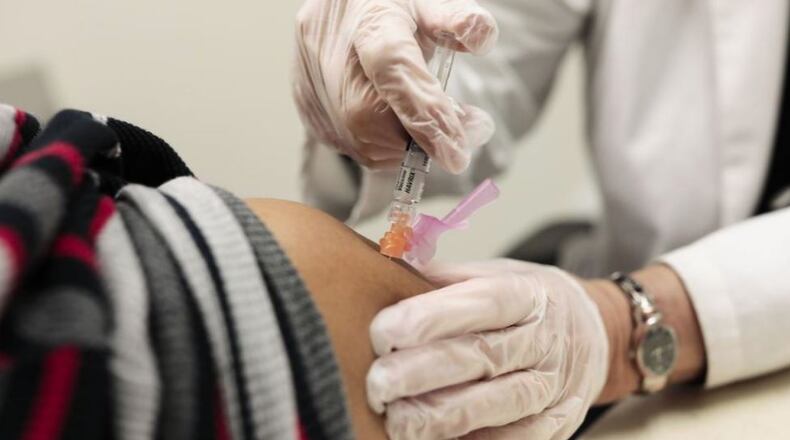Even as the economy added jobs, more people in Georgia and the U.S. went without health insurance all last year, according to figures for 2018 just released by the U.S. Census. The South in general saw a dramatic increase of uninsured children, the only region to see such a trend.
Across the U.S., the rate of uninsured rose from 7.9% to 8.5%. Nationally, it’s the first increase in the uninsured rate since 2009. In Georgia, the rate rose to 13.7%, meaning an additional 36,000 people lost or went without health insurance in 2018, according to the report.
Overall, more than 1.4 million Georgians went without health insurance for that year. Georgia has the nation’s third-worst rate of uninsurance, behind only Texas and Oklahoma.
>> Related: By the numbers: Health care in Georgia
Those numbers have the attention of Georgia’s highest elected officials. Research commissioned by the office of Gov. Brian Kemp shows the insurance gap is accompanied by some serious health problems in the state.
Kemp is planning to submit a health care “waiver” request to the federal government, which could end up getting more health coverage for more people.
His office has not released details about what that request will include.
The Georgia trend mirrors what’s happening nationally , especially in states that didn’t expand Medicaid to all of its poor people. States that didn’t expand Medicaid to all their poor had uninsured rates about double those of states that did expand Medicaid.
In Georgia, working-age adults who make less than the poverty level usually do not qualify for Medicaid or Obamacare coverage, also known as the Affordable Care Act.
State-level details from the U.S. Census report were not immediately available.
Nationally, the numbers of people with private insurance stayed steady. While the number of jobs went up in 2018, according to the report household income didn’t. Instead, the explanation for the national decline appeared to be fewer people on Medicaid and Medicare, the government health insurance programs for the poor and elderly.
That includes an increase of more than 400,000 uninsured children, 0.6% of all U.S. children.
About the Author
Keep Reading
The Latest
Featured



